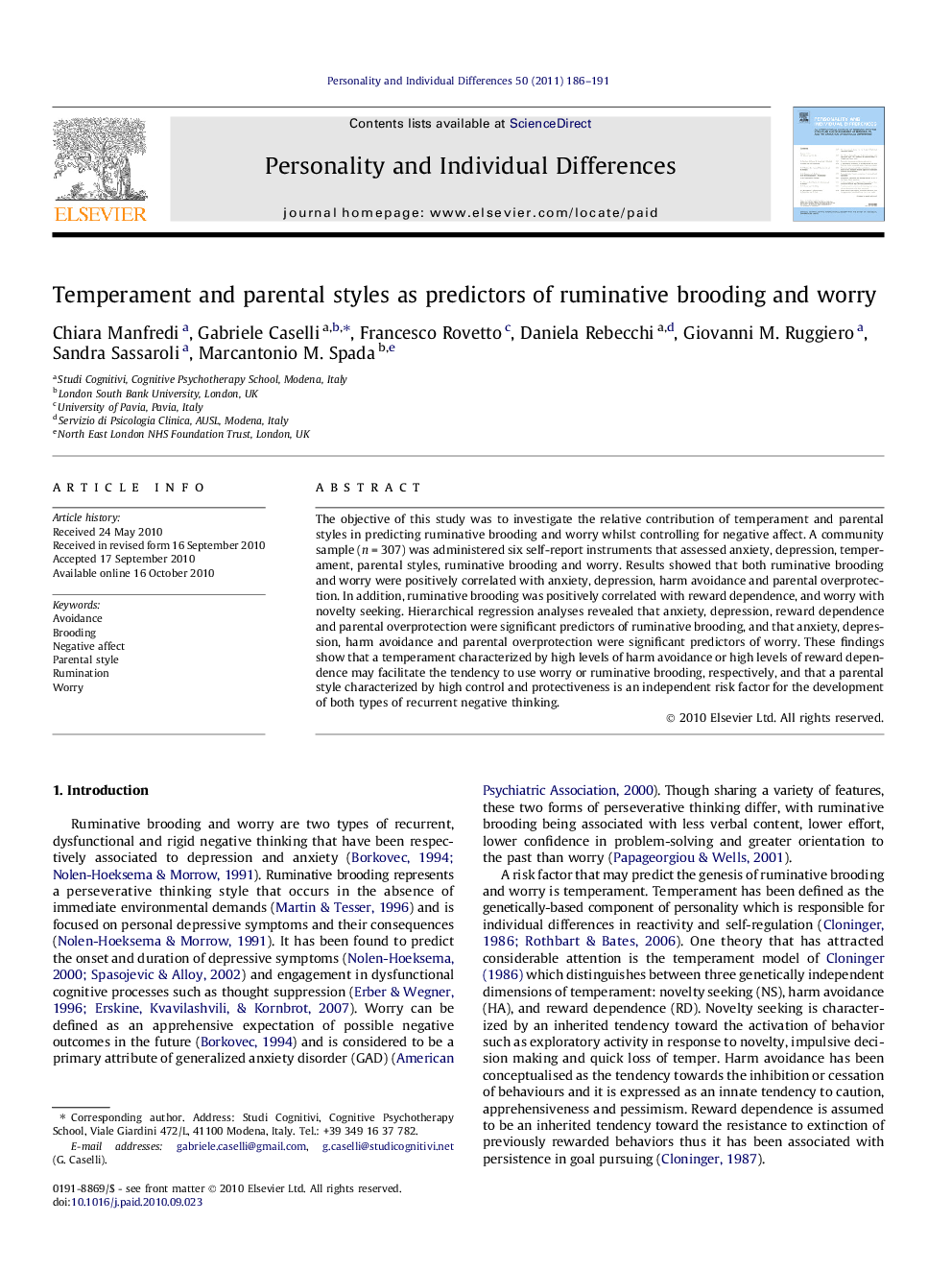| Article ID | Journal | Published Year | Pages | File Type |
|---|---|---|---|---|
| 891765 | Personality and Individual Differences | 2011 | 6 Pages |
The objective of this study was to investigate the relative contribution of temperament and parental styles in predicting ruminative brooding and worry whilst controlling for negative affect. A community sample (n = 307) was administered six self-report instruments that assessed anxiety, depression, temperament, parental styles, ruminative brooding and worry. Results showed that both ruminative brooding and worry were positively correlated with anxiety, depression, harm avoidance and parental overprotection. In addition, ruminative brooding was positively correlated with reward dependence, and worry with novelty seeking. Hierarchical regression analyses revealed that anxiety, depression, reward dependence and parental overprotection were significant predictors of ruminative brooding, and that anxiety, depression, harm avoidance and parental overprotection were significant predictors of worry. These findings show that a temperament characterized by high levels of harm avoidance or high levels of reward dependence may facilitate the tendency to use worry or ruminative brooding, respectively, and that a parental style characterized by high control and protectiveness is an independent risk factor for the development of both types of recurrent negative thinking.
